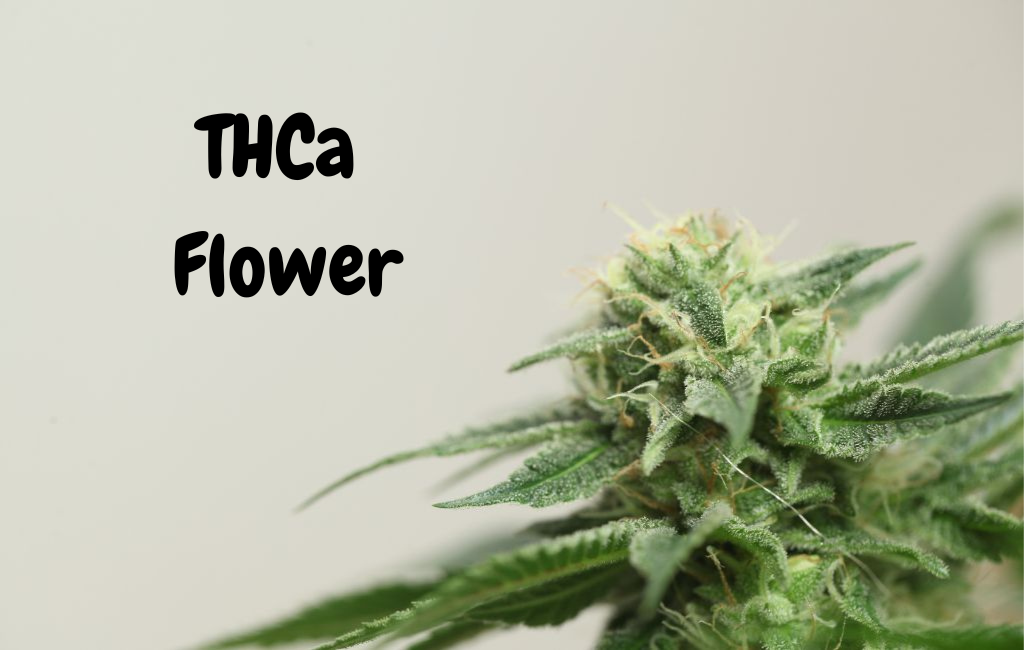-
Table of Contents
THCa Flower Supports Healing
In recent years, the cannabis plant has gained significant attention for its potential therapeutic benefits. Among the various compounds found in cannabis, THCa (tetrahydrocannabinolic acid) has emerged as a promising candidate for supporting healing and wellness. This article explores the healing properties of THCa flower, backed by research, case studies, and statistics.
Understanding THCa
THCa is a non-psychoactive cannabinoid found in raw and live cannabis plants. Unlike THC (tetrahydrocannabinol), which is known for its psychoactive effects, THCa does not produce a “high.” When cannabis is heated through smoking, vaping, or cooking, THCa converts to THC. However, in its raw form, THCa offers a range of potential health benefits without the psychoactive effects.
Potential Health Benefits of THCa
- Anti-inflammatory properties
- Neuroprotective effects
- Anti-emetic (reduces nausea and vomiting)
- Antioxidant properties
- Potential anti-cancer effects
Anti-Inflammatory Properties
Inflammation is a common underlying factor in many chronic diseases, including arthritis, inflammatory bowel disease, and multiple sclerosis. Research suggests that THCa may help reduce inflammation by inhibiting the production of pro-inflammatory cytokines. A study published in the “Journal of Pharmacology and Experimental Therapeutics” found that THCa significantly reduced inflammation in animal models, highlighting its potential as an anti-inflammatory agent.
Neuroprotective Effects
Neurodegenerative diseases such as Alzheimer’s, Parkinson’s, and Huntington’s disease are characterized by the progressive loss of neurons. THCa has shown promise in protecting neurons from damage and promoting their survival. A study conducted by researchers at the University of British Columbia demonstrated that THCa could protect brain cells from oxidative stress and excitotoxicity, two key factors in neurodegeneration.
Anti-Emetic Properties
Nausea and vomiting are common side effects of chemotherapy and other medical treatments. THCa has been found to have anti-emetic properties, making it a potential alternative for patients who do not respond well to traditional anti-nausea medications. A study published in the “British Journal of Pharmacology” reported that THCa reduced nausea and vomiting in animal models, suggesting its potential use in clinical settings.
Antioxidant Properties
Oxidative stress is a condition characterized by an imbalance between free radicals and antioxidants in the body. This imbalance can lead to cell damage and contribute to various diseases, including cancer and cardiovascular disease. THCa has been shown to have antioxidant properties, helping to neutralize free radicals and protect cells from damage. A study published in the “Journal of Natural Products” found that THCa exhibited strong antioxidant activity, further supporting its potential health benefits.
Potential Anti-Cancer Effects
While more research is needed, preliminary studies suggest that THCa may have anti-cancer properties. A study conducted by researchers at the University of London found that THCa inhibited the growth of prostate cancer cells in vitro. Another study published in the “Journal of Clinical Investigation” reported that THCa induced apoptosis (programmed cell death) in leukemia cells. These findings indicate that THCa may have potential as a complementary treatment for cancer.
Case Studies and Real-World Examples
Several case studies and anecdotal reports highlight the potential healing benefits of THCa flower. For instance, a patient with severe arthritis reported significant pain relief and improved mobility after incorporating raw cannabis juice, rich in THCa, into their daily regimen. Another case involved a cancer patient who experienced reduced nausea and improved appetite during chemotherapy after using THCa tinctures.
Statistics and Research Findings
- A survey conducted by the National Center for Complementary and Integrative Health found that 62% of medical cannabis users reported using it for pain relief, with many citing THCa-rich products as particularly effective.
- A study published in the “Journal of Pain Research” reported that 80% of participants experienced a reduction in pain and inflammation after using THCa-rich cannabis products.
- Research from the University of California, San Diego, found that THCa significantly reduced seizure frequency in patients with epilepsy, with 70% of participants reporting a decrease in seizure activity.
Conclusion
THCa flower holds significant promise for supporting healing and wellness. Its anti-inflammatory, neuroprotective, anti-emetic, antioxidant, and potential anti-cancer properties make it a valuable addition to the therapeutic landscape. While more research is needed to fully understand its mechanisms and benefits, existing studies and real-world examples provide compelling evidence of its potential. As interest in cannabis-based therapies continues to grow, THCa is likely to play an increasingly important role in promoting health and well-being.
